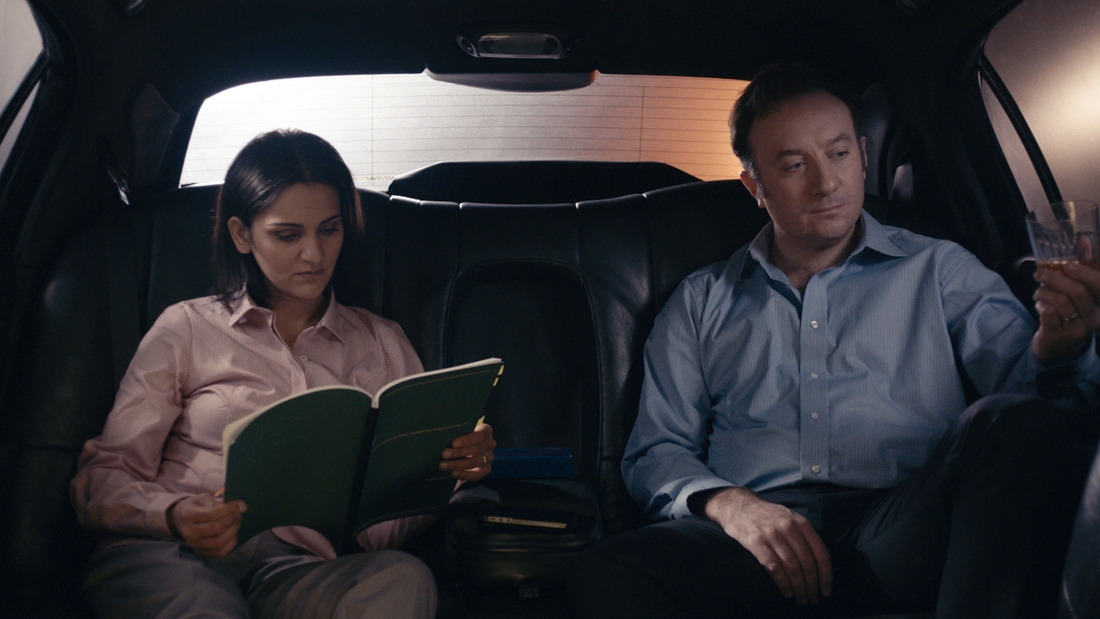We’ve seen relational aesthetics’ trend for catering hospitality but food and its politics are also being contemplated by the art world, as well as eaten by it. Multinational industrial food corporations, mass production and the ethics of branding are all subjects of Maryam Jafri’s first solo show in the UK, Mouthfeel at Gasworks, in conjunction with Delfina Foundation’s four-year programme on food politics.
In the first part of the show, Product Recall: An Index of Innovation, 2014, images of unsuccessful, highly industrialised and somewhat repulsive food products, such as PLUSmeat – an ‘extended’ ground meat using textured soy protein and a brand of Gerber baby food, but for adults, appear next to their related objects and factual texts telling the history of their manufacture. Much more interesting is the short film Mouthfeel, 2014, in which the action takes place in the back seat of a stretch limousine, and features a married couple.
Both are working for the same multinational food organisation – the wife, a successful food scientist (played by Jafri) has found a potential health hazard in one of their new ‘compounds’, which the husband, a senior brand manager, is eager to cover up. Their fast, witty conversation exposes many of the malfunctions in our capitalist world – not only food industry scandals, but also gender discrimination in the workplace, globalisation, the leakage of labour into private life and the lack of individual moral standards.
The film would have been a too obvious critique if it wasn’t for its interspersed short ‘commercial breaks’, featuring real commercials advertising multinational companies’ products, such as Pantene shampoo and Coca Cola, originally broadcasted in non-Western countries like India, Angola and Colombia. Contextualised by these commercials, which seem somewhat ludicrous in their placement here, the meleodramatic narrative of the film becomes reminiscent of the ‘social telenovela’ – a sub-genre of the popular telenovela TV series format, (produced in Latin-American and Spanish speaking countries) that, in addition to being drama, attempts to transmit social critique.
Another offshoot is The ‘entertainment education’ trend, considered to be the genre’s Western adaptation. One recent example of this is the four-part, online US satirical comedy Farmed and Dangerous, in which a big meat corporation is championing a petroleum-based ‘livestock nutrition system’ called ‘PetroPellet’. Surprisingly, the show was part of an unconventional marketing campaign by fast food chain Chipotle, who wanted to encourage debate about sustainable and ethical food production. By creating a film that could be an episode from an English-speaking social telenovela and grounding it in a western capitalist context, Jafri, a Pakistani-American artist, avoids depicting hackneyed one-sided power-relations between western/eastern, global/local and artisan/industrialised, and stays true to a world in which the cultural and economic interests and role-plays are in constant flux.
11 April 2014
